This interview was first published in December 2009, but in light of current events, we thought it would be interesting to re-read it and compare it’s contents with what’s in Tyler’s book ‘The Secret Race‘. Tyler Hamilton – Victim or Villain?
* * *
Now that the initial furore has died down following the shocking news of Tyler Hamilton’s positive doping test, VeloVeritas thought we should hear what the man himself has to say. It took us a long time and a lot of patience, but eventually he came back to us with the answers to our questions.
Back from a two year suspension for failing a drugs test after a Vuelta time trial win – a further ‘positive’ from his winning ride in the Olympic time trial championships was rendered null and void due to improper storage of the ‘B’ sample – it looked like all of his demons were behind him in 2008, as he took the US Pro title and the prestigious Qinghai Lakes stage race in China. And then early this year came the news that had us all shaking our heads; another failed test.
But there was no prolonged denial or outrage from the man who has a Liege-Bastogne-Liege win to his credit; just a ready admission that he had taken a medication for his depressive condition which contained proscribed substances.
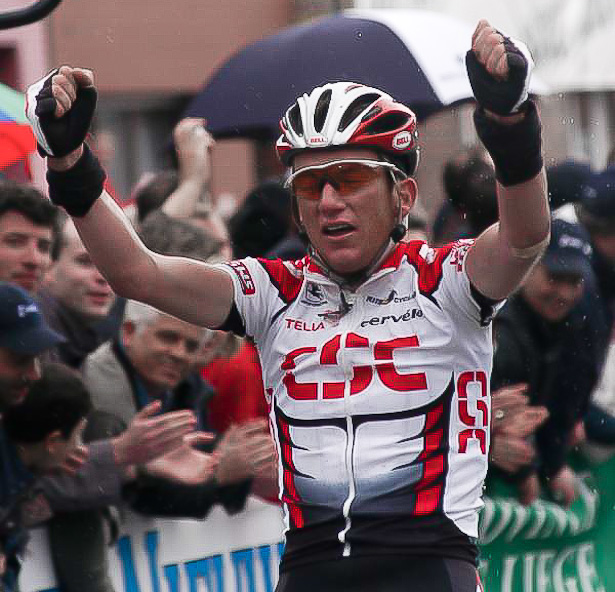
A journalist should never ask his readers rhetorical questions; but I have to – Tyler Hamilton, sinner or sinned against?
You choose.
When did you first feel the effects of depression?
“That’s a tough question. Probably when I was a young teenager. Looking back, I would have to say during my mid-teen years is when I first experienced symptoms of depression.
“It was sort of like being in a bit of a fog at times. I was always a quiet and shy kid and I spent a lot of time questioning myself.”
What are the symptoms of depression?
“Some of the typical symptoms of depression are sadness, loss of interest or difficulty staying focused, hopelessness, fatigue and self doubt. Most of these I have experienced at one time or another.”
What is the treatment?
“I was clinically diagnosed with depression in 2003 about a month and a half after the Tour. I was prescribed a medication called Celexa which helped a lot for a couple years.
“Since this last March, I’ve been on an anti-depressant called Effexor. That, along with talk therapy, has been great and I’ve seen a huge improvement.”
Have you established the cause of your depression?
“My sister and mother currently suffer with depression. My grandmother and great grandfather all fought the disease as well. Unfortunately, due to her depression, my grandmother committed suicide when my mother was 13 years old.
“Like a lot of diseases, depression can run in families. Basically, when I was born, I inherited a greater chance of suffering with a depressive illness. I have been told that you have two to three times the chance of getting the disease if it runs in your family.”
Are you still riding your bike; does that help?
“I ride my bike as much as I can. It helps me not only physically, but mentally. Cycling has always been a great way to clear my head. There were many days as a professional when I had a hard time actually getting out on the bike.
“I would suffer from lack of motivation and focus before many of my training rides. However, my whole attitude and perspective on things would drastically improve once I got out on the road.
“Staying active is a good way to keep depressive symptoms at bay.”
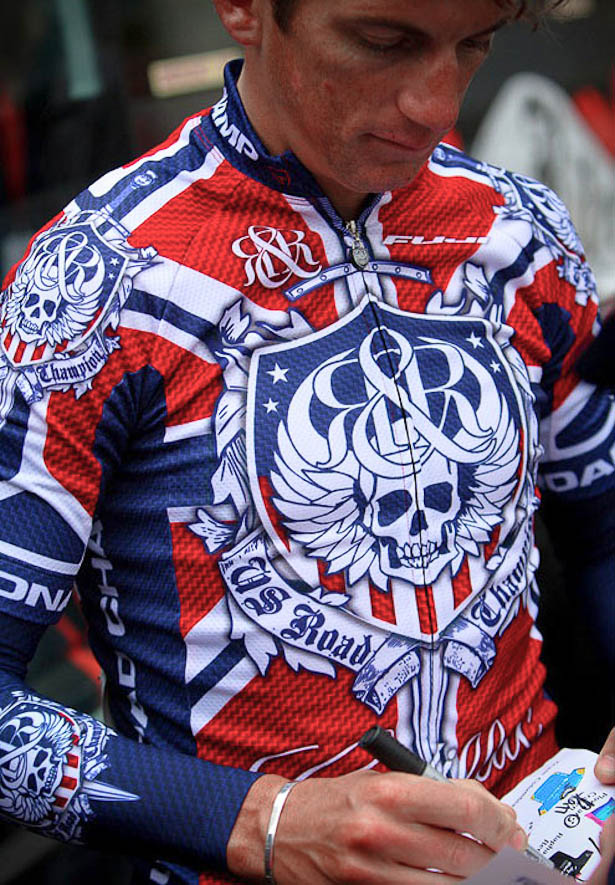
There must have been huge pressure from the Vuelta positive – could that have been a trigger?
“I’ve had depression more or less my whole adult life. I was diagnosed with depression two weeks after I finished my best racing season ever (2003). I was down in the dumps, which, for a lot of people, is hard to believe.
“I was clinically diagnosed in September 2003. In the weeks before, I couldn’t even get out of bed. That’s after winning a stage of the Tour and finishing fourth overall, winning the Tour de Romandie and Liege-Bastogne-Liege, signing a contract with Phonak, etc.
“So what should have been one of the happiest times of my life was actually quite a sad, dark time. As far as my depression is concerned, September ’03 was far worse than after the ’04 Vuelta situation.”
Do you ever wish you had just accepted the sanction, said nothing and not put yourself through the pressure you did, to clear your name?
“Absolutely not. Absolutely not.
“I’ve always believed if you don’t have your integrity, what do you have?
“Obviously, it was an expensive legal battle. But there was never a moment when I thought or believed I was going to lose. There’s a lot of evidence the public hasn’t seen. That’s unfortunate.
“Looking back, I wish I would have made my hearings public. Had it been an open hearing, the general public perspective would have been a lot different.
“I’m fine with that today, it is done and behind me. I am moving forward with my life and I have a lot to be thankful for.”
With the latest situation – didn’t it occur to ask for medical exemption?
“It would have been impossible.
“The UCI would not have accepted it and probably for good reason. However, the state of mind that I was in at the time, asking the UCI for a medical exemption was not even considered. This may seem strange to people, but when you are in that sort of state, you would do anything to get better.
“Since the situation became public, many people with the disease have communicated with me that they have been through a similar experience. It is easy now to look back.
“What I should have done is taken a step back, slowed down and focused on my health. Basically, I needed to take a “time out” and come back to the sport when I was mentally ready.”
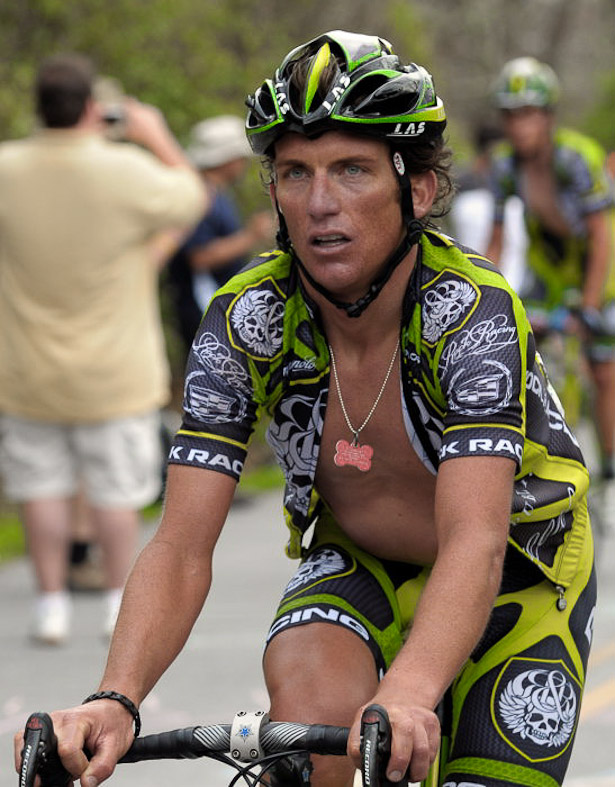
2008 was a great year for you; wins in the Qinghai Lakes and US Pro – were those satisfying to you?
“It was extremely satisfying. It was a fantastic second half of the year for me and a great year for Rock Racing.
“I had a lot of fun coming back and racing with a bunch of riders and staff that I really enjoyed being around. Riding and sharing my experiences with the younger riders was a lot of fun for me.
“On top of that, the team was a team unlike one I had ever been on before with a different attitude. For me, it made it one of the best years of my career and certainly the most fun.
“We did a lot of races around the world that I had not done before. For example, the Tours of Colombia and Qinghai Lake in China were absolutely beautiful.
“To win in China and at the national championships was fantastic, but what I will remember most about 2008 was being around such a great group of people.”
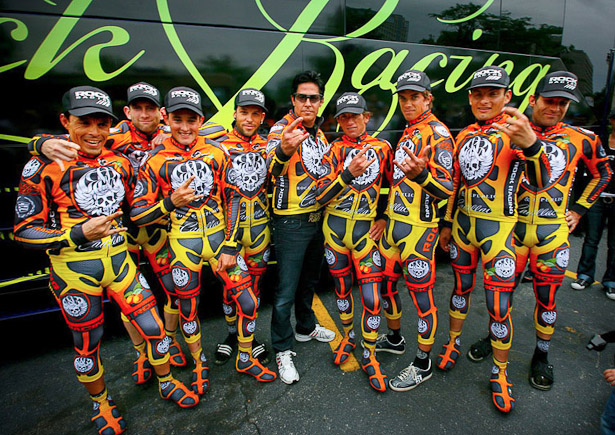
How has the fans’ attitude been towards you?
“People have been very supportive both before and after my depression issues were made public. I’ve had a ton of support and I have to thank them for that.
“Since my recent issues, it has been a huge surprise at how many people reached out to me. So many people have confided in me that they suffer from depression as well. Depression is so widespread. In fact, 20 percent of Americans will, at some point in their lives, suffer with depression.
“Depression still has a stigma to it. It’s obviously gotten a lot better over the years. Back when my grandmother was sick, she had to keep it quiet.
“Otherwise, she would have been considered crazy.”
How has your fellow pros attitude been towards you?
“A lot of my old teammates from over the years have reached out to me in support. That has been great and very much appreciated.
“I try to follow them in the races as much as possible and I certainly wish them well.”
How was/is life without being part of a pro team regime?
“It’s been surprisingly really good for me.
“I raced at a high level since 1994 and basically had been a professional for the better part of 15 years. During that period, my life was pretty much going 100 miles an hour.
“It’s been nice to slow down and focus on some other things now. I have used this past 6 months to spend more time with my family and friends, as well as work on my own issues. In addition, I started a training/coaching company, Tyler Hamilton Training.
“The official website is still a work in progress, but I have been signing up and coaching clients for the past few months. Working with all different ages and abilities has been an amazing experience.
“Seeing their improvements has been really satisfying.
“I have to thank Kevin Livingston, who runs his own coaching business in Austin, for his help in getting me started. He was a great professional cyclist and is a great coach, but he is even a better person.”
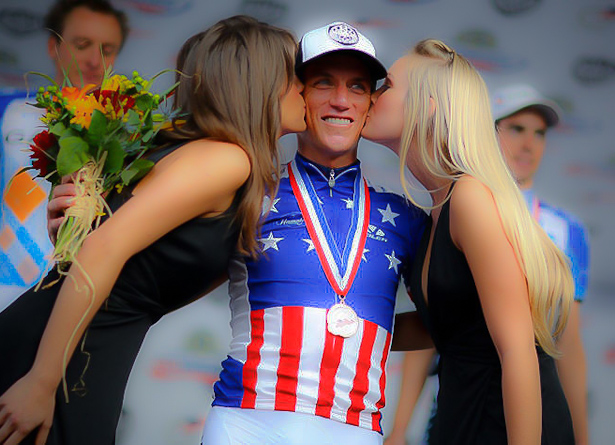
Do you still follow the sport?
“Absolutely, I love the sport of cycling.
“I have a lot of friends racing and working within the sport and I stay in touch with them as much as possible. I will always follow and support cycling. It gave me a lot and I will always try to give back in any way I can.”
If you could change one thing about pro cycling, what would it be?
“That’s a tough question. I guess if I had to change one thing, it would be that the riders played a part in the decision-making.
“I wish they had some sort of position within the sport where their voice was truly heard. Right now, the riders are, more or less, pawns and told what to do. They need to stand up and have one united voice.
“Eventually, that’s what has to happen or they’re going to remain being pulled in every which way. It’s such an international sport, with so many languages, that this is not an easy task (to unite) but something that needs to happen.
“Also, in terms of cycling in the United States, I did notice that USA Cycling’s memberships were up when Lance was winning the Tour from ’99 through ’05 and then up again this year now that he is back racing.
“During the period when he was retired, there was less of a progression. That being said, it is important that USA Cycling keeps the momentum going in the post-Lance racing era. I have a lot ideas.
“On the flip side, cycling in the US has come a long way. I remember in 1997, coming back from Europe and people not knowing anything about the Tour de France.
“They thought I was on vacation doing a bike tour. Today, the Tour de France is widely followed throughout the US, but most of the general public do not know that there are nine to ten other months where there is a high level of racing going on.
“Obviously there is room for improvement. The Amgen Tour of California has made some really big strides, and I think it has a chance to become a Grand Tour one day.
“(Race Director) Andrew Messick has done a great job and I believe it will continue to get bigger and bigger each year.”
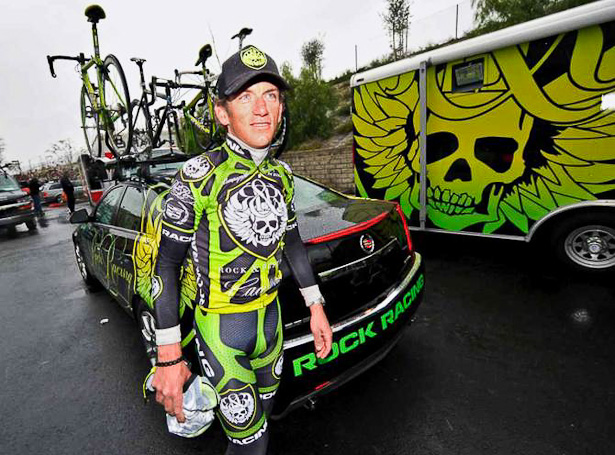
A big thanks to Tyler for responding to our questions, and a big thanks to Melinda and Sean from Rock Racing for making it happen. We wish Tyler the best of luck and strength in his ongoing fight.



